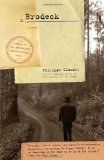Summary | Excerpt | Reading Guide | Reviews | Beyond the book | Read-Alikes | Genres & Themes | Author Bio

A Novel
by Julia FranckWinner of the German Book Prize, The Blindness of the Heart is a dark marvel of a novel by one of Europe’s freshest young voices— a family story spanning two world wars and several generations in a German family. In the devastating opening scene, a woman named Helene stands with her seven-year-old son in a provincial German railway station in 1945, amid the chaos of civilians fleeing west. Having survived with him through the horror and deprivation of the war years, she abandons him on the station platform and never returns.
The story quickly circles back to Helene’s childhood with her sister Martha in rural Germany, which came to an abrupt end with the outbreak of the First World War. Their father is sent to the eastern front, and their Jewish mother withdraws from the hostility of her surroundings into a state of mental confusion. In the early 1920s, after their father's death, Helene and Martha move to Berlin, where Helene falls in love with a philosophy student named Carl, and finds a place for herself for the first time. But when Carl dies just before their engagement, life becomes largely meaningless for her, and she takes refuge in her work as a nurse. At a party Helene meets an ambitious civil engineer who wants to build motorways for the Reich and make Helene his wife. Their marriage proves disastrous, but produces a son, and Helene soon finds the love demanded by the little boy more than she can provide.
Julia Franck’s unforgettable English language debut throws new light on life in early-twentieth-century Germany, revealing the breathtaking scope of its citizens’ denial—the “blindness of the heart” that survival often demanded. The reader, however, brings his or her own historical perspective to bear on the events unfolding, and the result is a disturbing and compulsive reading experience about a country ravaged from the inside out.
What can the general reader glean from immersion in this period between wars, which offers seemingly little respite from a mostly bleak trajectory? This may be a fair question, yet it may also be unfair to ask for greater redemptive interludes; The Blindness of the Heart is very much a tale of chilling times, and fittingly, it adopts an unsparing approach... this demonstration of how easily passivity could happen, day by day... transforms one woman's story into a more piercing, provocative consideration of how society at large can permit crimes to escalate even when individuals may not condone them...continued
Full Review
(568 words)
This review is available to non-members for a limited time. For full access,
become a member today.
(Reviewed by Karen Rigby).
Bautzen, located in the Upper Lusatia region, along the Spree River in Saxony, dates back to the Stone Age, though it was not mentioned in writing (as "Budusin") until the eleventh century. The city acquired its present name in 1868.

Its history has been marked by several widely documented events, including the pogroms on Kristallnacht ("Night of Broken Glass") from November 9-10, 1938, so named for the orchestrated destruction of numerous synagogues, homes, and Jewish businesses by Nazi stormtroopers.
It is also the site of Bautzen I and Bautzen II, prisons that acquired notoriety as the "Yellow Misery" and the "Stasi Prison," respectively, for their treatment of those who were considered political dissidents during the ...
This "beyond the book" feature is available to non-members for a limited time. Join today for full access.

If you liked The Blindness of the Heart, try these:

by Phillipe Claudel
Published 2010
Set in an unnamed time and place, Brodeck blends the familiar and unfamiliar, myth and history into a work of extraordinary power and resonance. Readers of J. M. Coetzee's Disgrace, Bernhard Schlink's The Reader and Kafka will be captivated by Brodeck.

by Hans Fallada
Published 2010
This never-before-translated masterpiece—by a heroic best-selling writer who saw his life crumble under the Nazis— is based on a true story. It presents a richly detailed portrait of life in Berlin under the Nazis and tells the sweeping saga of one working-class couple who decides to take a stand when their only son is killed at the front...
Outside of a dog, a book is man's best friend. Inside of a dog it's too dark to read.
Click Here to find out who said this, as well as discovering other famous literary quotes!